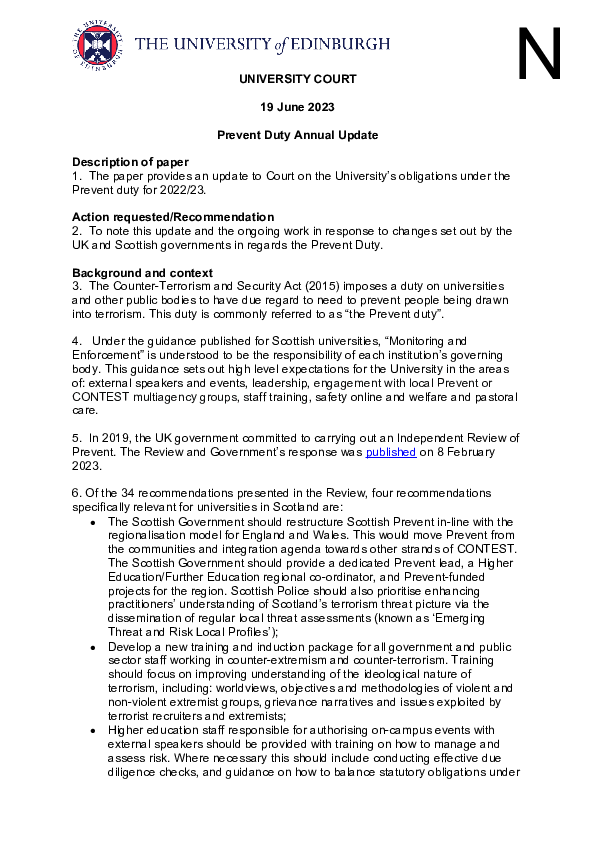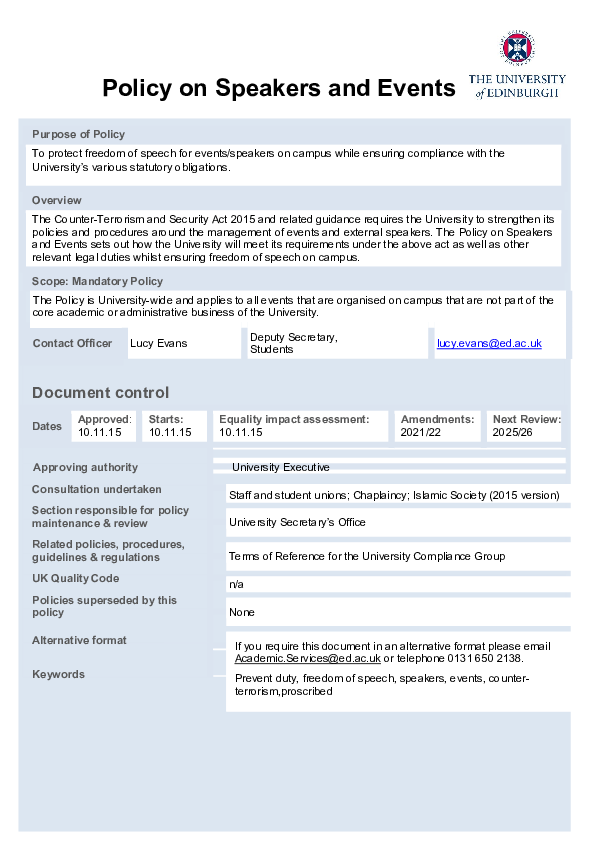Overview
Information on the University's compliance with the Counter-Terrorism and Security Act (2015), commonly known as “the Prevent duty”.
The Counter-Terrorism and Security Act (2015) imposes a new statutory duty on Universities to “have due regard to the need to prevent people being drawn into terrorism.” This is now commonly known as “the Prevent duty”.
Within universities, the term ‘Prevent’ refers to measures taken to safeguard members of the University community who might be at risk of being drawn into terrorism.
The broad duty above was accompanied by more detailed guidance for public bodies, and it is the detailed guidance that has shaped the University’s implementation of the duty. You can find the government’s specific guidance for the Scottish HE sector here.
Responsibility for the Prevent duty
Ultimate accountability for compliance with the duty rests with the University Court, who will receive an annual report on the implementation of the Prevent duty at the University. You can read the 2022/23 report to Court in the following document::
Operationally, the responsibility rests with the University Secretary. The University has also established a Compliance Group which advises the Secretary on difficult matters such as controversial speakers or referrals. You can read more about the Compliance Group (including details of membership) in the following document:
Implementation of the Prevent duty
The University has to date:
- introduced and/or amended a number of policies and procedures. This includes a new Policy on Speakers and Events. In implementing these policies and procedures, the University has been mindful of the need to ensure that its approach is proportionate and that it does not discourage debate of controversial and challenging ideas on campus.
- developed a training programme for selected senior staff in student facing roles, and online information briefings and related background material accessible to all other staff
- set out what staff should do if they have concerns that another member of the University community is being drawn into terrorism




